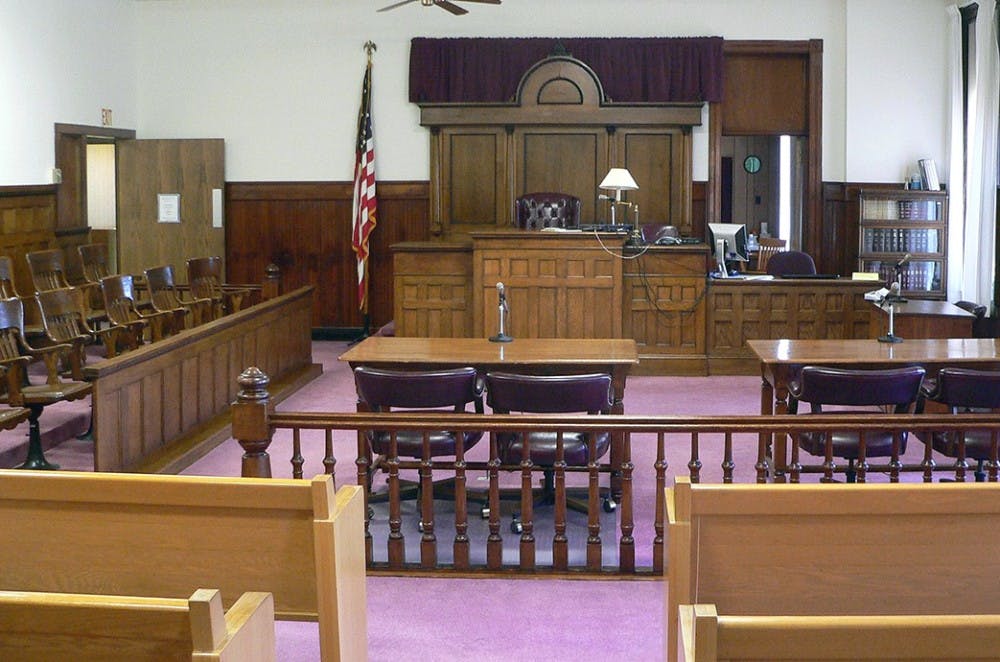When opinion pieces on criminal justice reform are penned, the majority tend to focus on sentencing reform, poor prison conditions, and the racial inequalities inherent in the current system. However, writers, activists and legislators who work towards reforming those laws and procedures, while important in their own right, overlook the largest challenges facing the criminal justice system — the underfunding and mismanagement of the public defense system.
In 1963, the Supreme Court case Gideon v. Wainwright established all citizens, regardless of the ability to pay, are entitled to legal counsel. In the decades since 1963, the rate of incarceration in America has grown exponentially, due in part to discriminatory and harsh laws such as the 1994 “Crime Bill.” However, the money and resources devoted to defending the newly accused and incarcerated have not risen comparatively. Most public defense offices are chronically understaffed as a result; it is possible for a public defender to be assigned upwards of 346 cases per year. A caseload of 346 cases per year averages out to approximately one and a half cases per day. Let me rephrase — to properly assist a citizen who may be wrongfully convicted of a crime, the average public defender is given less than one day.
In the most populated cities, the situation is even more dire. Some investigative journalists estimate that public defenders in New Orleans, Detroit, and Atlanta are only able to spend up to an hour on each case. Countless public defenders are overworked, and as a result many public defenders recommend that their client take unfair plea deals, leading to the common phrase “Meet ‘Em and Plead ‘Em.” ACLU lawyer Tanya Greene stated in her Mother Jones article, "You've got so many cases, limited resources, and there's no relief. You go to work, you get more cases. You have to triage." Triage is not a term that one should ever use to describe the process of defending an individual’s life and liberty in court.
In a country where 90 to 95 percent of criminal cases are decided by a plea deal, rather than a trial, to ignore the chronic mismanagement and overburdening of the public defense system while trying to correct the other components is akin to rearranging deck chairs on the Titanic.
Furthermore, like many problems in our nation, the current crisis disproportionately affects lower income Americans. Americans who are able to afford a private defense are far more likely to be able to obtain bail and walk free. While wealthy Americans are able to afford professional lawyers, low income Americans are forced to hope that their plea deal does not include time served. At a certain point, the equity of the public defense system becomes a constitutional issue — if low income Americans are not given adequate access to legal counsel then they do not receive “due process of law” or “the right to council” as stipulated by the 6th Amendment and the Supreme Court’s decision in Gideon v. Wainwright, respectively.
The first step to fixing the broken system is to standardize it across all 50 states. Currently states are not required to pay any money towards the defense of its citizens, and many states instead pass the burden to an underfunded federal government. This has led to certain states spending no money on public defense under the guise of “fiscal prudence,” even though states that do not provide proper defense can lose millions in appeals cases and can lead to astronomically high prison maintenance costs. The federal government must mandate that state governments raise the budget of the public defense system to match the rate at which they are incarcerating their own residents, and set a standardized funding formula that does not set the burden entirely on local counties. Ensuring that enough money is available will allow public defenders offices to hire additional staff and reduce the average workload per case, providing all Americans their constitutional right to due process.
Mandating that states set a fixed funding equation for financing the public defense system and index that funding to the rise in the costs of incarceration will ensure that the number of public defenders rises proportionately to the other costs of the criminal justice system. In practice, this would force states to fund their public defense system and spend money on protecting the most disadvantaged Americans who are unfairly maligned by the current complex system. Furthermore, this law would provide additional incentive to states that have elected to throw criminals in jail without due process. Forcing states to find ways to reduce recidivism and alternatives to imprisonment, as each new prison inmate would cost more to the state than it has in the past.
In this country, the defining legal standard quote is “innocent until proven guilty.” The problem with that statement is that not every American is given an equal chance to defend their innocence. When states underfund the public defense system they unfairly disparage the most vulnerable Americans. This crisis is present in every state, and is far more pressing that sentencing reform or improving prison conditions. There is no justice in improving a convicted individuals’ sentence or prison cell if they never would have been there in there first place had they been give an adequate defense.
Matthew Baker is a Viewpoint Writer for The Cavalier Daily. He can be reached at opinion@cavalierdaily.com.







